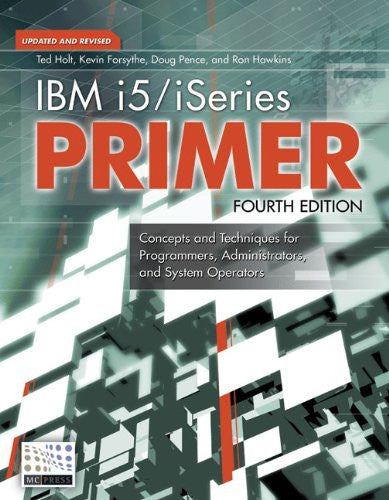Recently, I came across a speech by David Watson, president and CEO of Ultimate Technographics of Montreal. You can read his speech entitled “The Future of the Printing Industry” at www.ultimate-tech.com/futureprinting.htm. Ultimate Technographics is a printing company, so if anybody is interested in the future of printing, it’s Mr. Watson.
Mr. Watson said two things about the printing industry that are appropriate to your printing needs no matter what the nature of your businesses is. First, a smaller percentage of information will appear on paper in the future. What percentage of computer-generated output hits paper in your shop? In the future, you will distribute a higher percentage of reports by other means. For example, people and businesses will receive bills by email. More and more reports will be placed onto a server’s disk drives in HTML format.
Second, the amount of printed paper will increase. You will consume even more boxes of paper in the future. Was that what you expected to hear? At first, this seems like a contradiction to Mr. Watson’s first observation, but it’s not. His first observation dealt with the percentage of paper output, not the quantity.
Think for a moment about why he must be correct. You and I well know that computing is a three-step process: input, processing, and output. Everyone, or nearly everyone, is collecting more information than ever before. Even grocers keep track of what we buy, in what quantities we buy, and how often. All of that input must eventually end up in output of some kind.
So the paperless office predicted years ago is not a reality, and it’s not going to be a reality, at least not any time soon. In his speech, Mr. Watson advised his listeners not to sell their stock in paper-producing companies just yet.
Let me share one more thing David Watson said about the printing industry. He said, “The key challenge to the printing industry in these times of tremendous change will be to develop a means of providing an ever faster turnaround of shorter and shorter runs at cheaper and cheaper costs. This is necessary to remain competitive with other forms of media.” Again, this is also applicable to IT shops. You must learn to print more paper and to print it more cheaply.
Another problem you will continue to battle in the days ahead is check fraud. The
U.S. Office of the Comptroller of the Currency has estimated that financial institutions in the United States lose around $12 billion to $15 billion dollars per year to check fraud. To read that report, point your Web browser to www.occ.treas.gov/chckfrd/contents.htm.
The selection of articles we’ve assembled this month helps you face these and other challenges. We’ve got two good articles about Advanced Function Printing, a powerful technology that is underused in AS/400 shops. We’ve also got an article about Magnetic Ink Character Recognition that directly addresses check fraud. Many releases of OS/400 ago, IBM added the ability to attach a data queue to an output queue. This month, find out why that’s useful.
Printing is not an exciting topic. John Grisham doesn’t write novels about it. People don’t fight about it on “The Jerry Springer Show” (as far as I know). And if the
U.S. presidential candidates have mentioned it, I haven’t heard about it. But that’s OK. Life’s not all fun and games. To be honest, I had enough excitement during the first 10 years of my information-processing career to last me until retirement. Facing challenges like twinax cabling, uncooperative users, and RPG II would have made me a bald man if I were not bald already.
No, printing is not exciting, but it’s useful. And to my way of thinking, useful rates a lot higher than exciting.

















 Business users want new applications now. Market and regulatory pressures require faster application updates and delivery into production. Your IBM i developers may be approaching retirement, and you see no sure way to fill their positions with experienced developers. In addition, you may be caught between maintaining your existing applications and the uncertainty of moving to something new.
Business users want new applications now. Market and regulatory pressures require faster application updates and delivery into production. Your IBM i developers may be approaching retirement, and you see no sure way to fill their positions with experienced developers. In addition, you may be caught between maintaining your existing applications and the uncertainty of moving to something new. IT managers hoping to find new IBM i talent are discovering that the pool of experienced RPG programmers and operators or administrators with intimate knowledge of the operating system and the applications that run on it is small. This begs the question: How will you manage the platform that supports such a big part of your business? This guide offers strategies and software suggestions to help you plan IT staffing and resources and smooth the transition after your AS/400 talent retires. Read on to learn:
IT managers hoping to find new IBM i talent are discovering that the pool of experienced RPG programmers and operators or administrators with intimate knowledge of the operating system and the applications that run on it is small. This begs the question: How will you manage the platform that supports such a big part of your business? This guide offers strategies and software suggestions to help you plan IT staffing and resources and smooth the transition after your AS/400 talent retires. Read on to learn:
LATEST COMMENTS
MC Press Online